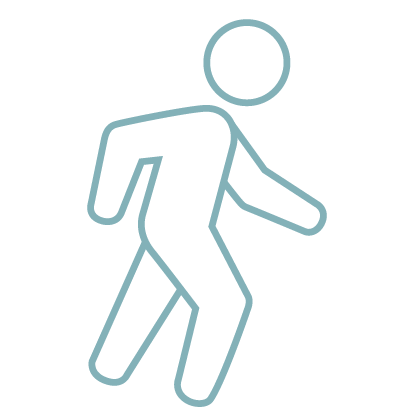Mental health
Mental health
Living with any chronic condition, including PAH, can have an impact on a person’s emotional wellbeing and mental health.
It is completely normal to experience feelings of uncertainty, loneliness and/or isolation or potentially feeling frustrated or even angry. Everyone’s experience is unique to them and how a person feels can fluctuate and change along the way.
Research has shown a high number of people living with PAH experience, or are diagnosed with, anxiety and/or depression - which can have a huge impact on quality of life.
Therefore managing mental health as part of the wider implications of being diagnosed with PAH, is hugely important.

To help keep your mental health top of mind – here are some tips to consider:

Speak to a healthcare professional
- It’s important to speak to your healthcare professional if you are experiencing symptoms of poor mental health, even if they are mild. Early management and prevention is key as it can provide you with coping strategies to manage and improve your mental health as early as possible
- Remember, mental health forms part of your overall health and wellbeing. Bringing this up at health appointments is completely acceptable – healthcare professionals have likely treated patients with similar needs

Talk to your local patient organisation
- As signs and symptoms of poor mental health may go unnoticed, it’s important to try and communicate with your family and friends to help them understand how you feel and your needs, to ensure you feel best supported
- If you are employed, consider speaking to your employer and work colleagues to educate them about your PAH and its impact so that they can support you at work
- Speak to a patient group about support available as they may have resources or local systems in place to provide mental health support e.g. a mental health hotline
- Try and find a peer support system. This is another way to connect with other people who are going through similar experiences and can help you feel less alone, more connected and supported

Diet and exercise can help
- Notice how your diet affects your mood – eating regularly and choosing slow energy releasing foods can help keep sugar levels steady and reduce the risk of feeling tired and down6 – it’s recommended to discuss significant dietary changes with your healthcare team before making them
- If you feel well enough, try adding gentle exercise, within your symptom limits, into your daily or weekly routine e.g. take a short walk or try yoga, as this can also improve mood and overall wellbeing - before changing your routine, it's important to discuss suitable exercises with your healthcare team

Write down your feelings
Keep a diary and make a note of when you experience poor mental health symptoms e.g. anxiousness or feelings of depression, and note what happens when you do. This may allow you to spot patterns and could help you describe your symptoms and feelings to your healthcare professional during your next appointment

Remember you are not alone
Try to remember you are not alone, many people – whether living with PAH or not – have experienced mental health challenges. The important thing is that poor mental health is recognised and prioritised as part of your overall care to achieve the best possible health outcomes
Visit the Living Well with PAH page or Useful links and tools page for more information.
